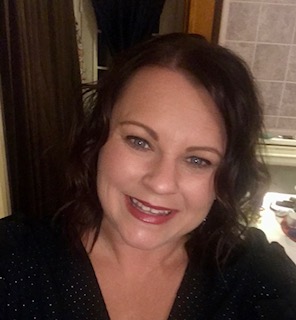
Employee Spotlight: Pamela Kuehl, Clinical Administrator
Pamela Kuehl began working at Grafton in 2004 as a therapist at the Berryville campus. Two years later, seeking to broaden her experience, she seized an opportunity to work in an inpatient psychiatric program for a healthcare system. Four years ago, she returned to resume her career at Grafton and is now the clinical administrator for the Winchester Region, as well as being an Ukeru Champion. She holds a bachelor’s of psychology, a master’s of counseling, and is a Licensed Professional Counselor (LPC).
Why did you want to work in behavioral healthcare?
I’ve always had a desire to help people. When I started in the field, I worked with kids doing truancy social work, and I enjoyed it. When I was going through residency and early in my career, I pretty much took any job I was offered for the experience. I wanted to explore what I wanted to do, the population I wanted to work with, and where I wanted to go in my career. I’ve worked in an acute hospitalization program and done outpatient treatment and in-home services. After working for a year after college, I went back to school to work on a master’s degree so I could become a LPC. I’ve always been fascinated by how the brain works, human behavior, people’s thought processes, and why people do what they do.
Why are Grafton’s clients unique?
We serve a wide variety of clients at our location, from ages seven to 21. They live in therapeutic community-based group homes and attend our private day school. One of our goals is to reintegrate our clients back into the community and help them on an individual level learn how to utilize services within the community. This can be very broad, for example teaching someone how to ride the bus or how to order a meal at a restaurant. We work as a team to help our clients develop their abilities, learn new skills, and build their independence. It is rewarding to see our clients grow.
What makes Grafton a special place to work?
I think it’s the team we have here that supports and helps one another. Also, the clients and the families that we serve make it a special place to work.
What would you say to a family considering Grafton for their child?
We look at the person as an individual and utilize their strengths, likes, and interest to help them reach their goals.
What does utilizing a trauma-informed approach mean to you and how has it affected your work?
To me, trauma-informed care means to be mindful of an individual’s history and to not do any more harm to the client. Our job is to help people move forward and to progress so that they feel like they have a meaningful life, whatever that may be for them. Comfort vs Control® means looking at each situation as it occurs and at what the client may be seeking. It also means teaching individuals how to get their needs met and feel valued.
What type of training, guidance and support have you received to help you do your job?
My position falls under the executive director, and I consult with her on a regular basis, as well as with my Grafton colleagues. Yearly, I am required by the state board of Healthcare Professionals to complete 20 hours of continuing education credits to maintain my license. Recently, I attended a suicide assessment training.
What do you like about working at Grafton versus other places you’ve worked?
I like the flexibility of being able to think outside the box. Working with a team, we try things with clients, and, if something doesn’t work, we go back to the drawing board. If it does work, we keep moving forward. We meet the clients where they are, find their strengths and interests, then reinforce and build on those as part of their program, because people are much more likely to do something if they are interested in it.
Do you have a favorite story from your time at Grafton?
We had a kid who came to us with a significant trauma history and severe aggression. Working with him, the team, and his parents, we significantly decreased his aggression to a couple of times a month versus a couple of times a day. It’s been really rewarding to see the team work together to help him acquire skills and be able to function and deal with things without being aggressive. As staff, we’re here to help clients and their families. In this case, I probably learned just as much – maybe more! – from them as they learned from me. Each client teaches me something new.
Any thoughts on being an Ukeru Champion?
It’s exciting to see the great things that are happening with Ukeru! In the Winchester region, we are working on getting all the clinical staff trained at the champion level. It’s integrated in Comfort vs Control, which is our theory at Grafton. I feel like we need to live, eat, and breathe it, and the more we can educate people and use it in the daily running of the program, the more effective it’s going to be.